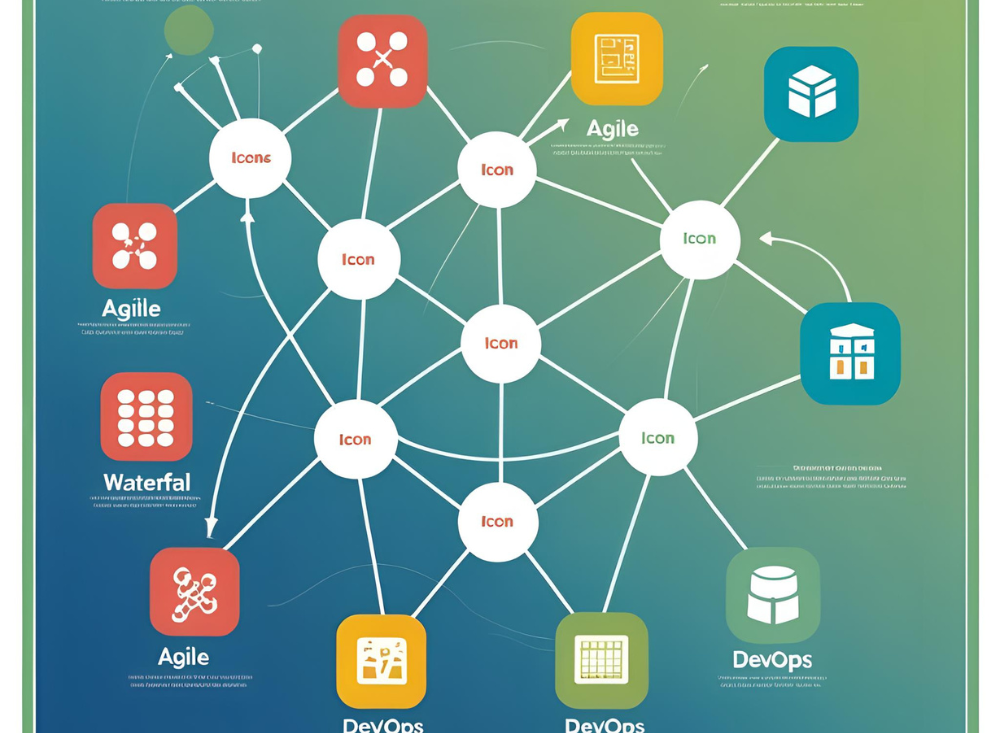
Software testing is a critical component of the software development lifecycle (SDLC), ensuring that applications meet quality standards, perform reliably, and deliver a seamless user experience. With the increasing complexity of modern software, choosing the right testing methodology is essential for success. This blog provides a high-level overview of key software testing methodologies and highlights how GenQE, an AI-powered testing platform, enhances their implementation to deliver superior quality assurance (QA).
What Are Software Testing Methodologies?
Software testing methodologies are structured approaches to validating and verifying software functionality, performance, and reliability. These methodologies guide QA teams in designing, executing, and evaluating tests to identify defects and ensure the software meets requirements. Each methodology serves specific purposes, depending on the project’s goals, timeline, and complexity. By leveraging AI-driven tools like GenQE, these methodologies can be applied more efficiently, reducing manual effort and improving accuracy.
Key Software Testing Methodologies
1. Waterfall Testing
The Waterfall methodology follows a linear, sequential approach where testing occurs after the development phase is complete. Each phase of the SDLC, including requirements gathering, design, coding, and testing, is executed in a fixed order.
- How GenQE Enhances Waterfall Testing: GenQE automates test case creation by analyzing requirements documents, ensuring comprehensive coverage without manual scripting. Its AI-driven insights identify critical test scenarios, reducing the risk of defects slipping through to production.
2. Agile Testing
Agile testing aligns with the iterative and collaborative nature of Agile development. Testing is continuous, occurring alongside development in short sprints to ensure rapid feedback and adaptability to changing requirements.
- How GenQE Enhances Agile Testing: GenQE integrates seamlessly with CI/CD pipelines, enabling continuous testing in Agile workflows. Its self-healing test scripts adapt to frequent UI changes, minimizing maintenance and ensuring consistent test reliability across sprints.
3. DevOps Testing
DevOps testing emphasizes continuous integration and continuous deployment (CI/CD), with a focus on automation and collaboration between development and operations teams to deliver software faster.
- How GenQE Enhances DevOps Testing: GenQE’s AI-powered automation accelerates test execution and prioritizes high-risk areas through risk-based analysis. Its cross-platform testing capabilities ensure consistent performance across diverse environments, supporting rapid DevOps cycles.
4. Exploratory Testing
Exploratory testing involves simultaneous test design and execution, allowing testers to explore the application dynamically to uncover defects that scripted tests might miss.
- How GenQE Enhances Exploratory Testing: GenQE augments exploratory testing by suggesting test scenarios based on user behavior and application patterns. Its predictive analytics highlight potential defect-prone areas, guiding testers to focus their efforts effectively.
5. Regression Testing
Regression testing ensures that new changes or updates do not negatively impact existing functionalities. It involves re-running test cases to verify the software’s stability.
- How GenQE Enhances Regression Testing: GenQE’s self-healing capabilities automatically update test scripts to accommodate UI or code changes, reducing regression testing time. Its intelligent test prioritization ensures critical functionalities are tested first, optimizing efficiency.
6. Performance Testing
Performance testing evaluates the software’s speed, scalability, and stability under varying workloads to ensure it meets performance requirements.
- How GenQE Enhances Performance Testing: GenQE simulates real-world user scenarios using AI to generate realistic load tests. Its analytics identify performance bottlenecks early, enabling teams to optimize application responsiveness before deployment.
7. Security Testing
Security testing identifies vulnerabilities and ensures the software is protected against threats like data breaches or unauthorized access.
- How GenQE Enhances Security Testing: GenQE’s AI algorithms analyze code patterns and user interactions to detect potential security risks. It prioritizes testing for vulnerabilities, ensuring robust protection for sensitive data and functionalities.
Benefits of Using GenQE Across Testing Methodologies
Regardless of the methodology, GenQE transforms software testing by leveraging AI to deliver the following benefits:
- Automation Efficiency: GenQE automates test case generation, execution, and maintenance, reducing manual effort and speeding up testing cycles.
- Comprehensive Coverage: Its AI-driven approach ensures test cases cover edge cases, complex interactions, and high-risk areas, improving software quality.
- Scalability: GenQE supports testing across web, mobile, and API platforms, making it ideal for diverse projects.
- Cost Reduction: By minimizing manual intervention and detecting defects early, GenQE lowers testing costs and prevents expensive post-release fixes.
- User-Friendly Design: GenQE allows testers to create tests using plain English, making it accessible to teams with varying technical expertise.
Why Choose GenQE for Software Testing?
GenQE stands out as a versatile, AI-powered tool that enhances every testing methodology. Its ability to integrate with modern development practices, such as Agile and DevOps, ensures seamless adoption in fast-paced environments. By automating repetitive tasks, adapting to changes, and providing intelligent insights, GenQE empowers QA teams to deliver high-quality software efficiently. Whether you’re implementing Waterfall, Agile, or exploratory testing, GenQE’s advanced features make it a game-changer for modern QA.
Conclusion
Software testing methodologies provide the framework for ensuring high-quality applications, but their success depends on effective execution. GenQE revolutionizes these methodologies by infusing AI-driven automation, self-healing scripts, and predictive analytics into the testing process. By adopting GenQE, organizations can streamline testing, reduce costs, and deliver reliable software that meets user expectations. As software complexity grows, tools like GenQE will continue to shape the future of QA, making testing smarter, faster, and more effective.
To explore how GenQE can elevate your testing strategy, visit genqe.ai.